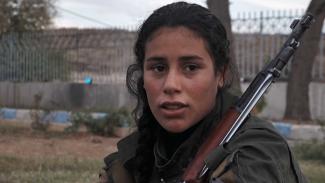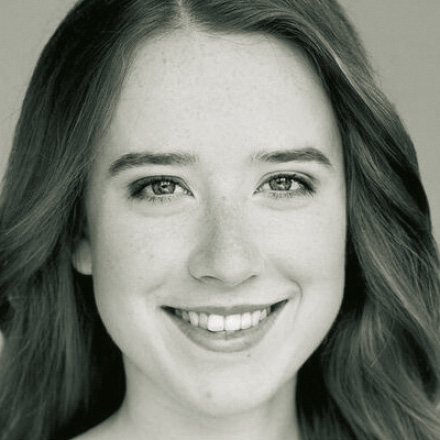Summer Special
Emancipation in Syria, both personal and political
 Antonia Kilian
Antonia Kilian
The personal is political, and vice versa. Nowhere is that close connection clearer than in war-ravaged north-eastern Syria. On the political front, violence still flares up occasionally between government forces, the fundamentalist Islamic State (IS), Kurdish- and Arab-led insurgents and various international armies. Some combatants, such as the Kurdish-led Syrian Democratic Forces, aim to establish grass-roots democracy in the regions they have wrested away from the IS.
Meanwhile, on the personal front, some young women are becoming aware of the entrenched patriarchal norms that keep them powerless. These women, while few in number, are challenging the repression they face personally, while also fighting for a broader grass-roots democracy.
This juxtaposition of the personal and the political drew German filmmaker Antonia Kilian to the region in 2016. Her initial destination, the city of Manbij, was a war zone. The Syrian Democratic Forces, composed mainly of Kurdish militias, was in the process of driving the IS out of the city.
As the city was too dangerous for filming at that time, Kilian was referred to a police academy for women on the other side of the Euphrates River, about 30 kilometres away. There she met 19-year-old Hala Mostafa, who had fled Manbij to escape her father’s plan to marry her off to an IS fighter.
The documentary, based on a year of filming, tells the story of Hala’s experiences during her training on “the other side of the river” and her eventual posting to Manbij as a policewoman, where her job was to protect women against violence. The film shows her growing resolve to support self-determination for women in general and for her own nine younger sisters in particular.
The training consists of both physical drills for the young women and lessons on the rationale for their future police work. Both trainers and trainees share their experiences, and they do not mince words. One tells the harrowing story of a woman stoned to death by her own family and neighbours. Another warns that men use women sexually: “A man is interested in that one night to satisfy his lust; after that night he would open the door and kick you out, if he could.” A third says, “Marriage is an instrument for suffocating women, and women are supposed to just believe it is their destiny.”
Hala absorbs these lessons and is strengthened by them. In a personal victory, she persuades her sister Sosan to join her at the academy, against their father’s strenuous objections. This works out well for the sisters, at least for a while.
But eventually Sosan buckles under the paternal pressure. The father, who may have ties to the IS, tells Sosan that if she returns and agrees to an arranged marriage, she can erase “the dishonour that Hala has brought on the family”. Sosan obliges and is married off to a man of her father’s choosing.
A scene just before Sosan’s wedding shows how patriarchy maintains control. Sosan sits in the small family courtyard in all her wedding finery, surrounded by her younger sisters. A young man, ostensibly an IS fighter, bursts in, shoots his rifle several times in the air and delivers this message: “Tell Hala her father says he can take care of her with one bullet.”
Hala, however, is undeterred. She continues her police work in Manbij. However, she is so upset by Sosan’s decision and so determined to save her other sisters from a similar fate, that she does something illegal and hot-headed: she tries to extract her younger sisters from the family home by force. This, naturally, lands her in trouble with the police, who are also her employers. Hala spends a few days in jail, and it is not clear what consequences her act will have for her policing job.
In their police work, the recruits try to bring the message of emancipation to civilian women as well. In one scene, a woman fleeing domestic violence seeks help from the police and receives it. That is one of the connections the film makes between the personal and the political. The subtitle of the film says it all: “No women, no revolution”.
Film
The Other Side of the River, 2021, Syria. Director: Antonia Kilian, Pink Shadow Films (Germany).
Aviva Freudmann is a freelance author based in South Carolina, USA.
freudmannaviva@gmail.com

